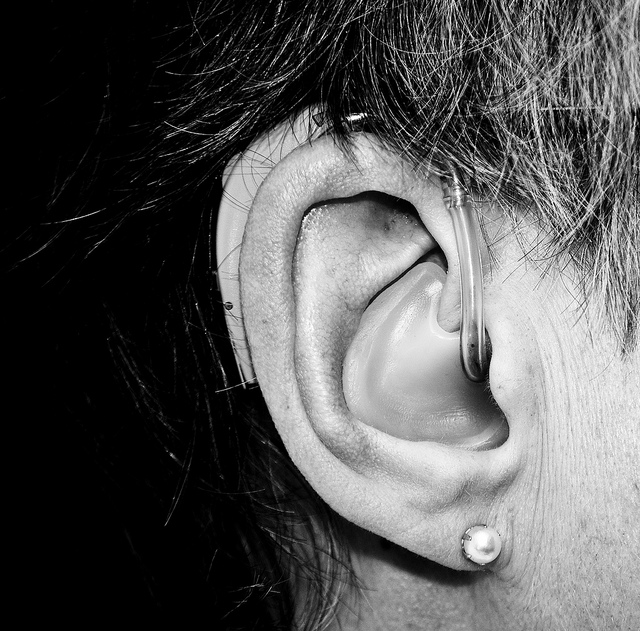Most of us have heard the expression “hard of hearing”, and we’ve seen elderly folks acquire hearing aids as their abilities wear down over time. Naturally, we are accustomed to thinking that these difficulties that come with age are attributable to a loss of nerve connections or decrease of function in some areas of the brain or ear. However, it may surprise you to learn that a large part of these auditory issues arise from an increase in connections and activity in one particular set of nerves in the ear.
Researchers at Johns Hopkins were the first to attempt to debunk the long-held belief that hearing loss results from a loss of nerve connections resulting from age. In their study, they viewed the ears of mice, examining the microscopic hair cells lining the inner ears of the rodents. These hair cells are responsible for converting audio waves into electrical signals, which then travel to the brain. There are two layers of hair cells, the outermost of which also amplifies sound waves in the inner ear.
Image Source: Adam Gault
The original theory surrounding loss of hearing stated that hearing loss was mainly linked with the loss of this outer layer of hair cells. The researchers added on to this theory when they made an additional finding.
There are two types of connections between the inner ear and brain: incoming and outgoing. The scientists found that incoming connections actually tend to suppress the natural amplification of sound that the outermost hair cells are responsible for. This led them to the conclusion that the increase of incoming connections is actually what results in hearing loss.
Image Source: MedicalRF.com
This conclusion did not come easily, however. Student Stephen Zachary, working at Johns Hopkins, painstakingly analyzed the electrical signals coming from the ears of aging mice- which is not an easy task. In the end, he found that the aging mice did indeed have more incoming connections and that mice with more of these connections were generally hard of hearing.
According to Paul Fuchs, a professor at Johns Hopkins, the brain’s connections seem to revert back slowly to the way they were in early childhood as a person ages. The researchers are unsure what causes this phenomenon, but they are working hard to uncover more about this new discovery. Hopefully new research like their study will shed some light on the causes of aging, and the complications that tend to come with it.
Feature Image Source: hearing aid by Steve Johnson










